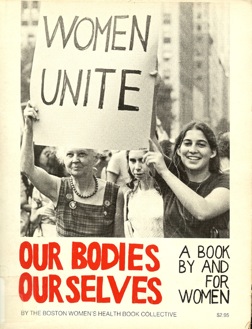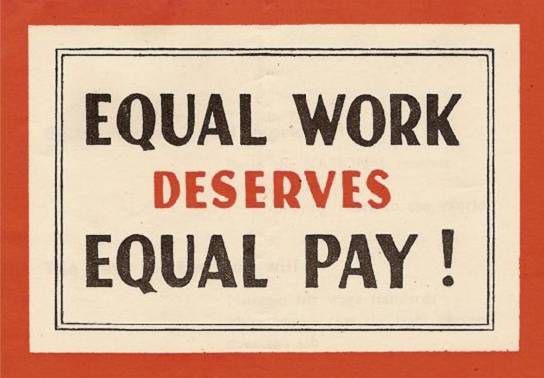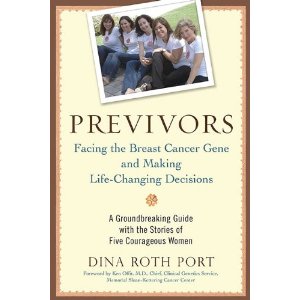Link Roundups
January 11, 2011 by Jill Finkelstein
2010: Lilith’s Year in Review
Every December, I look forward to JibJab’s latest animated year in review, which inspired me to do my own year in review. Here’s a look back on some of the biggest Jewish and Feminist news stories of 2010…
 On August 5th, Elena Kagan was confirmed to the U.S. Supreme Court, making her the second Jewish woman to be appointed as a Supreme Court Justice (the first being Justice Ruth Bader Ginsburg). Now that SCOTUS is one-third female, there’s an opportunity for significant gender progress. In Lilith’s Fall 2010 issue, Ginsburg expressed that she has no plans to retire any time soon. Looks like good news for feminists!
On August 5th, Elena Kagan was confirmed to the U.S. Supreme Court, making her the second Jewish woman to be appointed as a Supreme Court Justice (the first being Justice Ruth Bader Ginsburg). Now that SCOTUS is one-third female, there’s an opportunity for significant gender progress. In Lilith’s Fall 2010 issue, Ginsburg expressed that she has no plans to retire any time soon. Looks like good news for feminists!
2010 became an even more exciting year for Jewish women, when Sara Hurwitz adopted the title of the first Orthodox “Rabba,” Hebrew feminine for “rabbi,” coined by Rabbi Avi Weiss. Though Weiss faced a backlash from the Rabbinic Council of America, the mainstream Orthodox rabbinic organization, Hurwitz continues to proudly use the title. In December, for the first time ever, the first female Rabbis of each of the major sects of Judaism gathered together to celebrate Hanukkah.
However, not everything was as positive in 2010… There was somewhat surprising news for the Jewish community following results of a new study conducted by Berman Jewish Policy Archive. The study revealed a significant pay gap among Jewish communal professionals and found that while women make up 2/3 of Jewish communal professionals, they earn an average of $28,000 less than men. When the study controlled for “age, years in the field, level of responsibility, hours worked, and degrees earned, women’s salaries still trail men’s by about $20,000.” (more…)
- No Comments
December 24, 2010 by Jill Finkelstein
Link Roundup: The Personal is Political- A Week in Human Rights
Welcome to this week’s installment of Lilith’s Link Roundup. Each week we post Jewish and feminist highlights from around the web. If there’s anything you want to be sure we know about, email us or leave a message in the comments section below.
 This past Saturday, the U.S. Senate voted to repeal Don’t Ask Don’t Tell, a policy that has discriminated against openly gay men and women serving in the military. On Wednesday, President Obama officially signed the repeal. [NYT]
This past Saturday, the U.S. Senate voted to repeal Don’t Ask Don’t Tell, a policy that has discriminated against openly gay men and women serving in the military. On Wednesday, President Obama officially signed the repeal. [NYT]
In other political news, the Domestic Minor Sex Trafficking Deterrence and Victims Support Act of 2010 came close to being passed this past week. On Tuesday, the U.S. House passed a bill almost identical to the version that the U.S. Senate unanimously passed on December 9th, with some minor amendments. The new version was sent back to the Senate to be voted on before ending the lame duck session, but was blocked by Senator Jeffrey Sessions (R-AL). [Huffington Post]
Last week, the Congressional Joint Economic Committee (JEC), led by Representative Carolyn Maloney (D-NY), released Invest in Women, Invest in America: A Comprehensive Review of Women in the US Economy, a comprehensive assessment of women’s role in the economy. The study highlights the negative effects of inflexible work and family policies imposed on many women in the workforce. [Ms. Magazine]
Parenting columnist, Anna Solomon, recently wrote about her experience feeling alienated by religion while having a toddler daughter who’s in love with all things Jewish. [Kveller]
This month’s issue of EROS features an interesting Q&A with Lilith, the world’s first woman, as imagined by Elissa Strauss. [LABA]
Jewish teens from four major International Jewish Youth Movements have joined forces to end bullying and support LGBTQ Teens. Their goal is to get 18,000 Jews to sign the Jewish Community Pledge to Save Lives by the end of the year. The upcoming issue of Lilith will feature some of the anti-homophobia efforts in the Jewish community, including one for LGBT middle-school students. [JTA]
- 1 Comment
December 18, 2010 by Jill Finkelstein
Link Roundup: Women Rabbis and the Great Christmas Tree Debate
Welcome to this week’s installment of Lilith’s Link Roundup. Each week we’ll post Jewish and feminist highlights from around the web. If there’s anything you want to be sure we know about, email us or leave a message in the comments section below.

This week, Jessica Grose and Mark Oppenheimer debated whether or not Jews should own Christmas trees. In their four-part debate, they discussed the social and religious implications of this dilemma that is frequently faced by many interfaith couples like Jessica and her gentile husband. She adds, “Naming my kid Mary or festooning a fir tree does not negate my deeply felt Jewishness, nor does it dilute the Jewish traditions I still follow.” [Slate]
Last week, we reported the Hanukkah celebration that brought the first Reform, Conservative, Reconstructionist, and Orthodox women Rabbis together for the first time. The event will appear in an upcoming documentary on female Rabbis that is currently being filmed by Rabbi Lynne Kern and filmmaker Ronda Spinak. [JTA]
 Moment Magazine also highlighted women rabbis in their latest issue, with a special feature on Sara Hurwitz, the first Orthodox Rabba. In addition, they discussed a new trend in Orthodox Judaism, known as partnership minyans. These minyans hope to add gender equality to prayer by requiring 10 men and 10 women to be present. [IntheMoment]
Moment Magazine also highlighted women rabbis in their latest issue, with a special feature on Sara Hurwitz, the first Orthodox Rabba. In addition, they discussed a new trend in Orthodox Judaism, known as partnership minyans. These minyans hope to add gender equality to prayer by requiring 10 men and 10 women to be present. [IntheMoment]
Sometime in the upcoming months, Women and Their Bodies (WTB), an NGO working to promote comprehensive social change in the health attitudes of Israeli women (both Jewish and Arab), will release Hebrew and Arabic editions of Our Bodies, Ourselves.
On Thursday night, the House failed to pass The International Protecting Girls by Preventing Child Marriage Act, which would have created a plan to stop the harmful practice that affects millions of girls each year. [Feministing]
We’re proud to share that Lilith contributing editor Amy Stone’s Letter to the Editor was featured in the New York Times. Amy, one of Lilith’s founders, wrote in response to an article on Jewish burial traditions. She previously wrote about Feminist Funerals in Lilith’s Spring 2009 issue. [NYT]
- 1 Comment
December 10, 2010 by Jill Finkelstein
Link Roundup: Women to Watch and Feminist Current Events
Welcome to this week’s installment of Lilith’s Link Roundup. Each week we’ll post Jewish and feminist highlights from around the web. If there’s anything you want to be sure we know about, email us or leave a message in the comments section below.
On Monday, Jewish Women International (JWI) honored its 2010 Women to Watch. The honorees consisted of women who have used their careers to make a difference in the world. Each of the women shared their stories with the audience and offered their “Pearl of Wisdom.” [JWI]
 Also on Monday, for the first time ever, the first female Rabbis of each of the major sects of Judaism gathered together to celebrate Hanukkah. [Wicked Local]
Also on Monday, for the first time ever, the first female Rabbis of each of the major sects of Judaism gathered together to celebrate Hanukkah. [Wicked Local]
Want to know the latest scoop on Don’t Ask Don’t Tell? Ms. Magazine posted a full update with everything you need to know about DADT. [Ms. Magazine]
If you’re looking for a go to place for feminist current events, check out Women’s Funding Network’s daily roundup of news affecting women and girls around the world. [Women’s Funding Network]
- 2 Comments
December 4, 2010 by Jill Finkelstein
Hanukkah Inspires Activism–and Special Giftingism, from Lilith to You!
Welcome to this week’s installment of Lilith’s Link Roundup. Each week we’ll post Jewish and feminist highlights from around the web. If there’s anything you want to be sure we know about, email us or leave a message in the comments section below.

November 25th kicked off 16 Days of Activism Against Gender Violence Campaign, sponsored by the Center for Women’s Global Leadership at Rutgers University. This year’s theme is Structures of Violence: Defining the Intersections of Militarism and Violence Against Women. The site offers resources and a calendar of activism events from around the world.
This week, the Senate Foreign Relations Committee was scheduled to vote on the International Violence Against Women Act (IVAWA). Amnesty International started a Twitter advocacy plan on Twitter this week encouraging people to spread the word and take action. [Human Rights Now]
On Wednesday, Google honored the 55th anniversary of the day that civil rights activist Rosa Parks refused to give up her seat on the bus to a white man. [Mashable]
Italian illustrator Alexsandro Palombo stirred up controversy with his sexualized interpretations of Anne Frank. [Jezebel]
A couple weeks ago, a study revealed that there is a significant wage gap among Jewish communal professionals. This week, Jill Jacobs, Rabbi-in-Residence at Jewish Funds for Justice, proposed a plan on how the Jewish community can close the gap and make sure that women are being fairly compensated for their work. [The Forward]
Gloria Feldt, women’s rights activist and author of “No Excuses: 9 Ways Women Can Change How We Think About Power,” also offered advice on how female Jewish communal service professionals can get ahead and earn more money. [The Sisterhood]
Our upcoming Winter 2010 issue will include a major feature on women & work, including a report on the Jewish communal service wage gap study, conducted by Steve Cohen, and an amazing profile of Sara Horowitz, who started the Freelancers Union. We are currently offering a Huge Hanukkah Subscription Discount. Order now now through December 8th and save almost half on new subscriptions and gift subscriptions when you use the promo code HAN10!
- 3 Comments
November 19, 2010 by Jill Finkelstein
Link Roundup: A Week in Women's Rights
Welcome to this week’s installment of Lilith’s Link Roundup. Each week we’ll post Jewish and feminist highlights from around the web. If there’s anything you want to be sure we know about, email us or leave a message in the comments section below.

This past week has been a big, yet not so successful week for Women’s Rights. On Wednesday, the Paycheck Fairness Act lost by two votes in the Senate. The Act would have deterred wage discrimination by closing loopholes in the Equal Pay Act and by barring retaliation against workers who disclose their wages to coworkers. Women currently make 77 cents to $1.00 that men make. Last week, we reported that a study, conducted by Berman Jewish Policy Archive, found that there is also a significant pay gap among Jewish communal professionals. Check out the results to find out how your senator voted on the Paycheck Fairness Act.
In other Women’s Rights news, on Thursday the Senate held a hearing on CEDAW, the Convention on the Elimination of All Forms of Discrimination Against Women. CEDAW was adopted by the United National General Assembly in 1979; however it has yet to be ratified by the United States. [CEDAW2010]
The Forward had an interesting blog post this week about the struggles faced by Jewish women who opt not to have children. [The Sisterhood]
–Jill Finkelstein
- 4 Comments
November 12, 2010 by Jill Finkelstein
Link Roundup: Law Professors and Communal Professionals
Welcome to this week’s installment of Lilith’s Link Roundup. Each week we’ll post Jewish and feminist highlights from around the web. If there’s anything you want to be sure we know about, email us or leave a message in the comments section below.

In honor of Veteran’s Day, Jewish Women’s Archive (JWA) highlighted stories of Jewish women who served in the United States Armed Forces. [Jewesses With Attitude]
Lovely profile of Lilith’s longest standing board member, Barbara Dobkin! [Wall Street Journal]
This week, psychology professor Brenda Major revealed the truth about claims that having an abortion can lead to women to “mental health risks, including post-traumatic stress and a greater danger of suicide.” [Washington Post]
Results of a new study conducted by Berman Jewish Policy Archive revealed the significant pay gap among Jewish communal professionals. The study found that while women make up 2/3 of Jewish communal professionals, they earn an average of $28,000 less than men. When the study controlled for “age, years in the field, level of responsibility, hours worked, and degrees earned, women’s salaries still trail men’s by about $20,000.” [eJewish Philanthropy]
 Marjorie Ingall shared her thoughts on Hush, a new young adult novel that uncovers sexual abuse in the ultra-Orthodox community. [Tablet Magazine]
Marjorie Ingall shared her thoughts on Hush, a new young adult novel that uncovers sexual abuse in the ultra-Orthodox community. [Tablet Magazine]
On a lighter note, we happened to stumble across this excellent list of sexual assault prevention tips that are guaranteed to work. [Feminist Law Professors]
–Jill Finkelstein
- 3 Comments
November 5, 2010 by Jill Finkelstein
Link Roundup: Politics and Prayer
 Welcome to this week’s installment of Lilith’s Link Roundup. Each week we’ll post Jewish and feminist highlights from around the web. If there’s anything you want to be sure we know about, email us or leave a message in the comments section below.
Welcome to this week’s installment of Lilith’s Link Roundup. Each week we’ll post Jewish and feminist highlights from around the web. If there’s anything you want to be sure we know about, email us or leave a message in the comments section below.
This week, our friends at Jewish Women’s Archive (JWA) introduced a free online curriculum designed to teach about Jewish activism in the Civil Rights Movement. This new gender-inclusive curriculum, named Living the Legacy, was developed by Judith Rosenbaum to include the lesser-known women Civil Rights activists and to give their stories a rightful place in history. [The Sisterhood]
At a Knesset hearing on Monday, opposition leader Tzipi Livni argued that women should be more involved in peace negotiations. She emphasized that her argument was “not just a matter of women’s rights, but is in the best interest of the State of Israel.” [Jerusalem Post]
A new study conducted by the Women’s Philanthropy Institute at the Center on Philanthropy at Indiana University found that women are more likely to give money, and on average give more money, than men. The study, called Women Give 2010, hopes to both encourage charities to expand their targeted donor base and encourage more women to give by showing them the powerful impact of their donations. [Feministing]
The Democrats may not have fared so well on Election Day, however there was some hope for many of the victorious Jewish candidates, including Senator Barbara Boxer, who also celebrated the 18th anniversary of becoming one of the first Jewish women elected to the U.S. Senate (the other being Dianne Feinstein) this week. [New Voices]
–Jill Finkelstein
- 1 Comment
Link Roundups, Nothing New Under the Sun
October 29, 2010 by Jill Finkelstein
Link Roundup: Breast Cancer Awareness
 Everyday, we come across interesting articles and wonderful resources for Jewish feminists. Now we are bringing them directly to you in a new feature of the Lilith blog, our weekly Link Roundup. Each week we’ll post highlights from around the web. And, we want you to get involved! If there’s anything you want to be sure we know about, email us or leave a message in the comments section below.
Everyday, we come across interesting articles and wonderful resources for Jewish feminists. Now we are bringing them directly to you in a new feature of the Lilith blog, our weekly Link Roundup. Each week we’ll post highlights from around the web. And, we want you to get involved! If there’s anything you want to be sure we know about, email us or leave a message in the comments section below.
Start here with a peek into the Lilith’s rich archives in this week’s special edition of Nothing New Under the Sun! For a look at Lilith’s unique take on breast cancer awareness, click here to download our 1995 article entitled “MASTECTOMY: Twelve Months after Surgery A Bathing Ritual for the End of Mourning.”
 On Thursday, Jerusalem hosted its first-ever breast cancer race, sponsored by Susan G. Komen for the Cure Foundation. In honor of the event, the walls of Old City Jerusalem were lit up with pink lights. [Washington Post]
On Thursday, Jerusalem hosted its first-ever breast cancer race, sponsored by Susan G. Komen for the Cure Foundation. In honor of the event, the walls of Old City Jerusalem were lit up with pink lights. [Washington Post]
As it turns out, the Susan G. Komen for the Cure Foundation and Israel have had a strong bond for a number of years. Israel was awarded the foundation’s first international research grant 16 years ago. The foundation has also invested $2 million in several research facilities in Israel, including Weizmann Institute of Science, Hebrew University-Hadassah Hospital in Jerusalem, Beit Natan and Life’s Door. [The Fundermentalist]
Over at The Sisterhood, Chanel Dubofsky explains her concerns in her blog post entitled “Why I hate Breast Cancer Awareness Month.” She cites Barbara Ehrenreich, who wrote, “To some extent, pink-ribbon culture has replaced feminism as a focus of female identity and solidarity” in her 2009 essay, “Not So Pretty in Pink.” Debra Nussbaum Cohen goes on to add that “ribbon culture as a whole — and its sister statements, the cause-related Facebook status update and the endlessly-forwarded email — have for many replaced meaningful social activism.” [The Sisterhood]
 The Jewish Week reviews a new book called Previvors: Facing the Breast Cancer Gene and Making Life-Changing Decisions, by Dina Roth Port. The book documents 5 high-risk women who take extreme precautionary health measures to prevent breast cancer. The article notes that breast cancer is more prevalent among Jewish women because, “Ashkenazi Jews have a 10 times greater chance of carrying either mutated BRCA gene than the general population.” [The Jewish Week]
The Jewish Week reviews a new book called Previvors: Facing the Breast Cancer Gene and Making Life-Changing Decisions, by Dina Roth Port. The book documents 5 high-risk women who take extreme precautionary health measures to prevent breast cancer. The article notes that breast cancer is more prevalent among Jewish women because, “Ashkenazi Jews have a 10 times greater chance of carrying either mutated BRCA gene than the general population.” [The Jewish Week]
–Jillian Finkelstein
- No Comments
 Please wait...
Please wait...